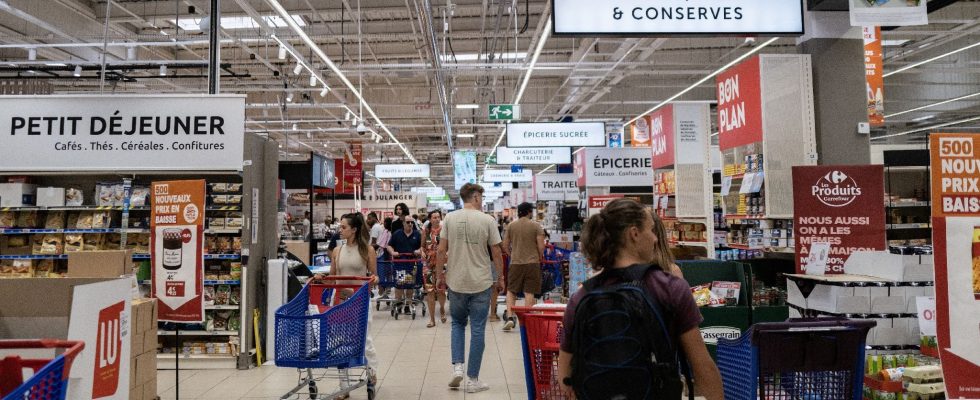While inflation on food prices reached 11.9% on average in 2023 compared to the previous year, eroding household purchasing power, the Foodwatch association alert, in an investigation published Tuesday February 6, on a new fraudulent practice by manufacturers: “cheapflation”.
A contraction of “cheap” and “inflation”, it designates the substitution, in a recipe, of an ingredient with a product of lower quality, in order to reduce production costs, but without informing the buyer.
It results in the degradation of the nutritional quality of a product, namely “the energy value, the lipid, protein, vitamin or organoleptic content linked to the appearance, taste, flavor”, details the NGO on its website, combined with an increase in the price per kilo or per liter. This technique is reminiscent of another, highlighted by consumer associations in recent months: “shrinkflation”, namely the opaque reduction of the quantity in packaging, by maintaining or increasing the price.
A practice that is not new
The investigation thus points to different types of food products concerned: Fleury Michon crab sticks or Findus Alaskan pollock fillets whose quantity of fish meat has decreased, Bordeau Chesnel rillettes with less chicken meat but whose price per kilo has increased by 31% in three years. But also Maille mayonnaise with less egg yolk, Milka biscuits whose sunflower oil has been replaced by cheaper palm oil, while their price has increased by 27%.
“We have identified examples dating back to 2016, well before the start of the rise in food prices. The phenomenon is therefore not recent, but inflation could have encouraged manufacturers to resort to these practices,” explains Foodwatch , as part of an investigation carried out with the program “France grand format” on France 2.
Difficult to spot
The manufacturers interviewed in the survey justify these changes by the increase in the prices of raw materials. But it is the lack of transparency on these practices that the association denounces, these modifications in the recipes not being indicated, and being difficult to identify. “Millions of people face food insecurity: for them, products, especially the healthiest ones, are becoming more and more inaccessible,” denounces Foodwatch.
Concerning “shrinkflation”, or “reduflation” this time, the government is working on a draft decree requiring supermarkets by March to further explain this practice of manufacturers of consumer products, agro-industrialists or distributors, consisting of reduce the quantities of products sold rather than significantly increase prices – too much.
